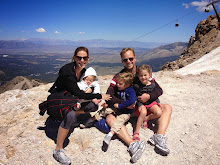
A close friend called to tell me that he isn't happy with the way he feels and the way he looks. His diet is horrible, he isn't exercising, and it's daunting to think of where to begin to start improving. We all know what it feels like to be unsatisfied with ourselves, and the only way to tackle these insecurities is by facing them head-on. We possess the power to change. Of course, that's easier said than done. A big part of changing is making the decision to do it. Once the decision has been made, action is required. But in order to act, there must be a plan in place. It's impossible to succeed unless we know the steps we need to take to achieve our goal.
When it comes to weight loss, there are numerous approaches -- low-carb diets, low-fat diets, high protein diets, cleansing diets, raw food diets. The list is long. In reality, there is only one equation to remember: burn more than you consume. If you expend more than you intake, you'll lose weight. That leads to an obvious question: "How much do I consume?". The best way to find out is by keeping a food journal. Record every meal, drink, snack, morsel, and sip that enters your mouth and then after one week evaluate your diet. I realize that calculating calories, fat grams, protein, and carbs isn't an easy task, but there are plenty of guides and simple calculation tools online. (I'm also happy to help!). Yes, this will take some effort and time, but once you have a clear understanding of what you're putting into your body, it will be easier to see where the problem areas are and what needs attention.
I told my friend that I don't believe in making drastic changes and I said this because most of our habits are developed over long periods of time. It's very difficult overnight to completely transform something we're used to doing, and it's also unrealistic. I advocate starting small, but being consistent. Small steps are easier to implement and commit to. An example of a small step would be switching from whole milk or 2% to 1% milk, and eventually drinking non-fat milk. Another example would be starting each morning with breakfast, even if it's just a piece of fruit or whole wheat toast with peanut butter. Focus on one thing and move from there.
The benefit of taking small, calculated steps when trying to change is because when we falter, which will happen occasionally, it's easier to forgive ourselves and move forward. And forgiving ourselves is critical when trying to adjust learned behavior. Becoming healthier requires discipline but it doesn't mean life has to become regimented and restrictive -- quite the opposite. By eating more nutritiously and exercising, our bodies feel better and, therefore, we approach life with a more positive outlook. When you're confident in your skin, anything is possible. That's not to say all of our problems will be solved -- there will always be struggles and we'll always have room to improve. But I believe that when we're making our best effort, we can accept the mishaps with greater ease.
As far as my dear friend is concerned, I know he's on the right path because in voicing his discontentment, he's already aware of what needs to change. There's work ahead of him, but with determination and support (which he has from me and many others), he'll be successful. I'll do my best to remind him that the daily small successes need to be recognized and acknowledged, because without the small changes, the large transformation is impossible.


